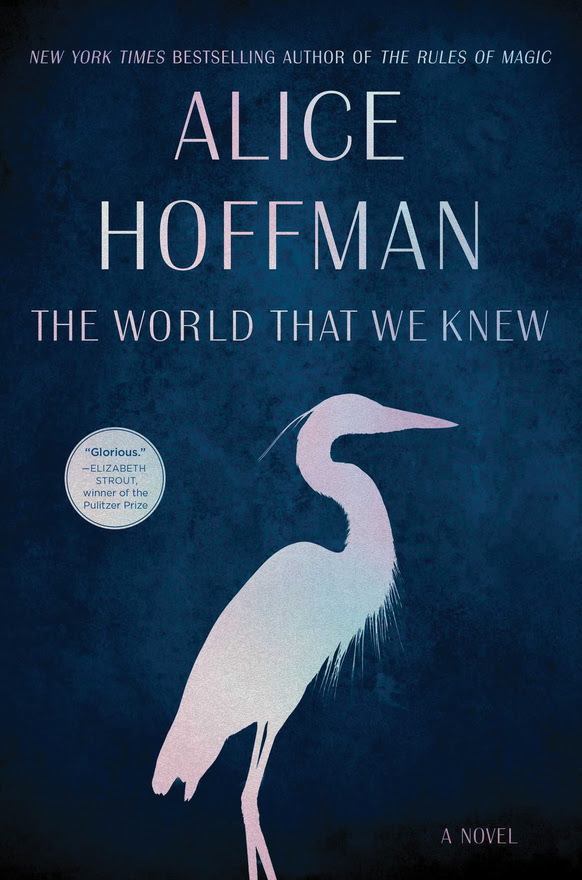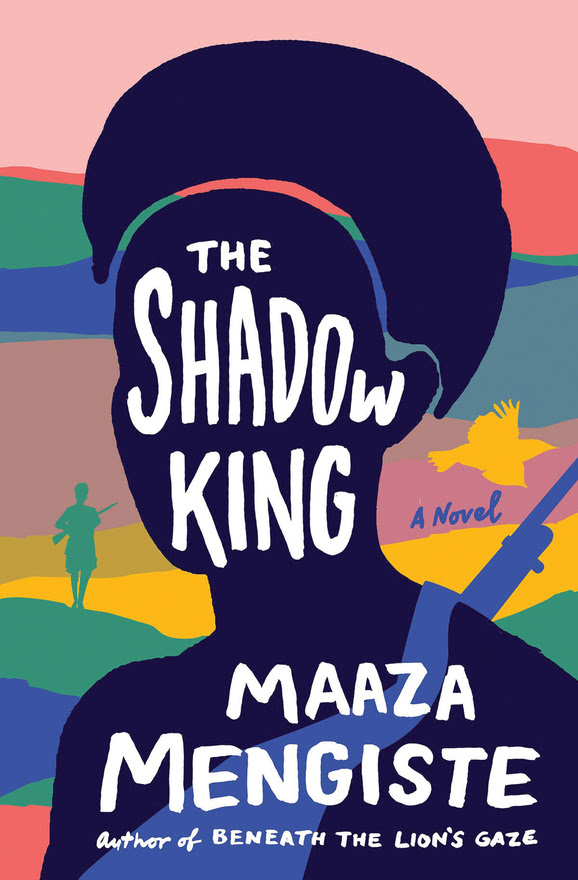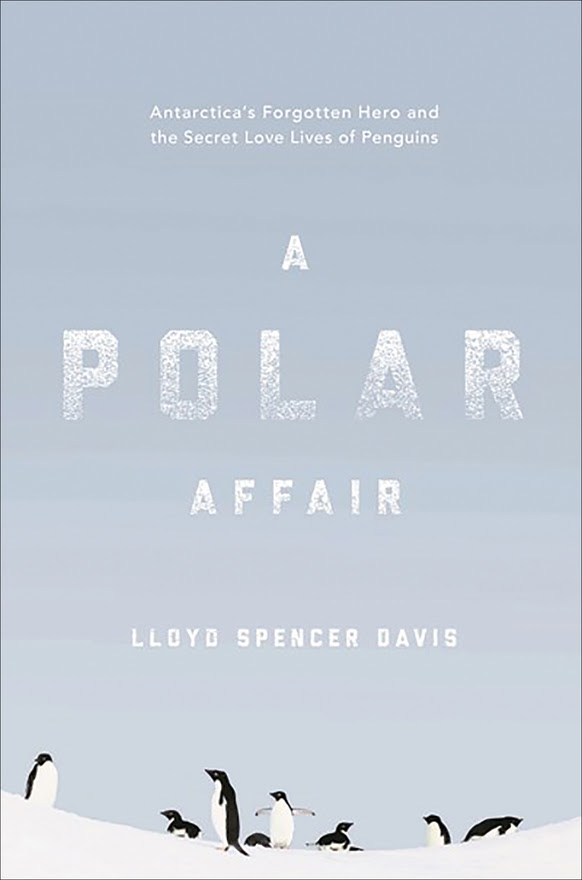Librarian’s Pick: The World That We Knew – Alice Hoffman

“Hoffman’s story begins in 1941 in Berlin, where a young Jewish mother, Hanni, knows that she must find a way to smuggle her daughter, Lea, out of the city before the Nazis take notice of her. To do this, she turns to a rabbi for mystical help, only to discover that his daughter, Ettie, is more willing to help Lea through magical means. Ettie, working from knowledge she’s gained through observing her father, crafts a golem they call Ava to guide and protect Lea. Thus begins an unlikely and harrowing journey through France, where Ettie finds a new purpose, Lea finds her soul mate and Ava finds that she’s much more than a single-minded creation.
In beautifully precise prose, Hoffman chronicles the experiences of these characters and those whose lives they touch along the way. Throughout the next three years of the war, each woman tries to survive while also pursuing her own process of self-discovery. Though Nazi-occupied France is an endlessly compelling place to many readers, Hoffman never takes her historical setting for granted. Rather than leaving us to lean on what we think we know, she weaves a fully realized vision of the hidden parts of history, chronicling the stories of people who slipped through the cracks on their way to freedom and the emotional toll that freedom took.”
Librarian’s Pick: Unfollow – Megan Phelps-Roper
 “There are two ways to write about a dam bursting. You can begin at the exact moment the cresting waters rupture the wall and surge toward freedom—or you can start long before that, with the first drops of rain that eventually overrun the embankments. In Unfollow, Megan Phelps-Roper chooses the second approach to explain why she left the notorious Westboro Baptist Church.
“There are two ways to write about a dam bursting. You can begin at the exact moment the cresting waters rupture the wall and surge toward freedom—or you can start long before that, with the first drops of rain that eventually overrun the embankments. In Unfollow, Megan Phelps-Roper chooses the second approach to explain why she left the notorious Westboro Baptist Church.
One of the most surprising aspects of this remarkable book is how loving the Westboro Baptist Church was—at least to its members in good standing. Phelps-Roper’s childhood was idyllic in many ways. She was surrounded by caring, intelligent and passionate adults who adored her. By the age of 8, however, she was joining them in protesting against the LGBTQ community and being rewarded for spewing vile slogans. This strange juxtaposition defined her youth: Phelps-Roper went to school, shopped at the mall, ate popcorn at the movies—and then rushed out to picket the funerals of soldiers killed in Iraq or to publicly pray for more children to be shot after Newtown. By the time she was in her 20s, Phelps-Roper was in charge of the church’s social media presence, using her formidable intellect to defend the reprehensible. And yet, throughout her book is an awareness that each incident contributed to the erosion of her faith in Westboro’s theology.
It’s ironic that the very qualities her family instilled in her—intellectual rigor, intimate knowledge of the Bible, courage in the face of fierce opposition—led to her inevitable departure. When she could no longer support either the church’s theology of hatred or its belief in its own infallibility, she renounced them.
Phelps-Roper is a masterful writer. She writes movingly about the searing pain of separation from those she continues to love, and beautifully about how freeing herself from a theology of hate has given her life greater meaning and purpose. In a time of growing intolerance, Unfollow is essential reading.”
Librarian’s Pick: Heaven, My Home – Attica Locke
 “Attica Locke’s atmospheric thriller Heaven, My Home takes place in the northeastern Texas town of Jefferson, a once-prosperous trading center fallen on hard times (“the city square was like a courtesan who’d found Jesus”). Texas Ranger Darren Matthews investigates the disappearance of a 9-year-old boy who didn’t return from a solo boating adventure on nearby Caddo Lake. The missing boy is the son of Aryan Brotherhood leader Bill King, a convicted and incarcerated murderer. Jefferson was one of the first settlements composed primarily of freed slaves, in addition to a band of Native Americans who successfully dodged the wholesale relocation of tribes to Oklahoma during the U.S. westward expansion. The town is now home to their descendants. Add those aforementioned white supremacists into the mix, and the town becomes a veritable powder keg awaiting a spark—such as a black landowner whose animosity toward his bigoted tenants is well documented, and who is the last person to have seen the missing boy. Few suspense novelists display a better grip of political and racial divides than Attica Locke, and she spins a hell of a good story as well, introducing characters and locales you will want to visit again and again.”
“Attica Locke’s atmospheric thriller Heaven, My Home takes place in the northeastern Texas town of Jefferson, a once-prosperous trading center fallen on hard times (“the city square was like a courtesan who’d found Jesus”). Texas Ranger Darren Matthews investigates the disappearance of a 9-year-old boy who didn’t return from a solo boating adventure on nearby Caddo Lake. The missing boy is the son of Aryan Brotherhood leader Bill King, a convicted and incarcerated murderer. Jefferson was one of the first settlements composed primarily of freed slaves, in addition to a band of Native Americans who successfully dodged the wholesale relocation of tribes to Oklahoma during the U.S. westward expansion. The town is now home to their descendants. Add those aforementioned white supremacists into the mix, and the town becomes a veritable powder keg awaiting a spark—such as a black landowner whose animosity toward his bigoted tenants is well documented, and who is the last person to have seen the missing boy. Few suspense novelists display a better grip of political and racial divides than Attica Locke, and she spins a hell of a good story as well, introducing characters and locales you will want to visit again and again.”
Librarian’s Pick: Poisoner In Chief – Stephen Kinzer
 “Throughout the 1950s, under Gottlieb’s imaginative leadership, MK-ULTRA experimented with LSD and other dangerous drugs on unwitting or coerced subjects—mental patients, prisoners and just plain old everyday folks. Many were left mentally disabled for life; some were even killed. One fellow CIA scientist was likely thrown out of a window when he was deemed unreliable. And it was all done in a completely fruitless search for the ability to “brainwash” human minds. Nothing worked—ever.
“Throughout the 1950s, under Gottlieb’s imaginative leadership, MK-ULTRA experimented with LSD and other dangerous drugs on unwitting or coerced subjects—mental patients, prisoners and just plain old everyday folks. Many were left mentally disabled for life; some were even killed. One fellow CIA scientist was likely thrown out of a window when he was deemed unreliable. And it was all done in a completely fruitless search for the ability to “brainwash” human minds. Nothing worked—ever.
In this masterful book, Kinzer demonstrates that the “research” done by Gottlieb’s team was as horrifically unethical as anything done by Nazi doctors later tried for war crimes. And yet, as Kinzer carefully documents, Gottlieb was a “nice guy” who loved his family and lived a proto-hippie lifestyle in rural Virginia. He spent his post-CIA years quietly, as a speech therapist who treated children—when he wasn’t destroying documents or stonewalling congressional committees.
During the years of investigations and lawsuits that began in the 1970s, Gottlieb never publicly repented; indeed, he believed himself to be a true patriot who had fought a justified war against communism. Kinzer’s chilling book reveals what can happen when morality is jettisoned in the name of national security—then and now.”
Librarian’s Pick: The Shadow King – Maaza Mengiste
 “At the center of Maaza Mengiste’s stunning second novel is Hirut, an Ethiopian servant girl who rises to become an important warrior in the Ethiopian struggle to expel would-be Italian conquerors under the dictator Benito Mussolini, whose army invaded the country in the 1930s.
“At the center of Maaza Mengiste’s stunning second novel is Hirut, an Ethiopian servant girl who rises to become an important warrior in the Ethiopian struggle to expel would-be Italian conquerors under the dictator Benito Mussolini, whose army invaded the country in the 1930s.
One of the thrills of the story is to witness Hirut, who is often harshly mistreated by some of her wealthier countrymen, develop into a determined and powerful person. But that is by no means the only wonder of the novel. Mengiste has said that at first she felt trapped by the need to stay true to historical facts. Luckily, she broke away from that suffocating exactitude and produced a work of fiction that is epic in reach, with brilliant borrowings from the forms of classic tragedy. There is, for example, a chorus that interjects and sometimes disputes the narrative being told. There are descriptions of photographs that render an intimate sense of the horrors and heroics of the war. And there are gripping descriptions of the battles themselves.
Then there are the other characters. The myth in Ethiopia about this war is that through courage and pluck the noble, outgunned Ethiopian peasantry defeated a modern, mechanized European army. It’s partly true. But in the range of her Ethiopian characters portrayed here is something closer to the truth: There are some bad actors on the side of the righteous. Likewise with Italians. The leader of the invaders is thoughtful and brutal; his war crimes are appalling. His photographer, there to document the victories and atrocities, is both soulful and morally compromised.
In The Shadow King, no character is completely pure. And the war is brutal. Mengiste often writes lyrically, but she also writes bone-chilling descriptions of the terror and savagery of the war. The book is impossible to put down or put out of mind.”
Librarian’s Pick: A Polar Affair – Lloyd Spencer Davis
 “The polar explorations of the 19th and 20th centuries are well-chronicled journeys to both the North and South poles, strewn with well-known names such as Shackleton, Peary, Scott, Nansen and Amundsen. Less well known is the first, albeit reluctant, penguin biologist, a British physician named Gregory Murray Levick who accompanied Robert F. Scott on his doomed attempt to reach the South Pole in 1912. This was a man who knew little about—and had even less interest in—studying penguins, preferring instead to eat them whenever necessary (which was often the case).
“The polar explorations of the 19th and 20th centuries are well-chronicled journeys to both the North and South poles, strewn with well-known names such as Shackleton, Peary, Scott, Nansen and Amundsen. Less well known is the first, albeit reluctant, penguin biologist, a British physician named Gregory Murray Levick who accompanied Robert F. Scott on his doomed attempt to reach the South Pole in 1912. This was a man who knew little about—and had even less interest in—studying penguins, preferring instead to eat them whenever necessary (which was often the case).
Yet according to his modern-day counterpart, fellow penguin biologist and author Lloyd Spencer Davis, the rather odd Levick would inspire Davis’ own career choice decades later. In Davis’ enthralling account, A Polar Affair: Antarctica’s Forgotten Hero and the Secret Love Lives of Penguins, he grows to respect and admire Levick, afflicted though Levick was with the rigid Victorian values that put him uncomfortably at odds with the promiscuous Adélie penguins.
Levick, in fact, was so ambivalent about reporting what he observed in the subcolonies of breeding penguins—the “bawdy behavior of these ‘hooligans’”—that he pasted paper over certain passages in his journal, as if he were embarrassed by what he saw. His assumptions about those “prim and proper, monogamous little creatures that mate for life” were dashed. As for the explorers themselves, Davis quickly adds, “Sexual misdemeanors in the polar regions are not, it would seem, the province of Adélie penguins alone.” The valiant explorers and their many lovers, as Davis writes it, were no strangers to amorous discoveries. Shackleton, for example, “is probably more penguin than he is a man of his word when it comes to marital fidelity.”
With treacherous ice floes entrapping ships, invisible crevasses that became deathtraps, scurvy, frostbite and much, much more, Davis’ Antarctica is a vividly described, unforgiving world of ice and wind—where, by the way, freezing, starving men had to eat their dogs and ponies, and on Sundays gathered for Bible readings and hymns. But not all the dangers were weather-induced. Scott’s wife, Katherine, wrote and exhorted him to die, if necessary, to achieve his goal. Beaten to the pole by Amundsen and doomed by his many mistakes, Scott succumbed to the elements, his frozen body still clutching her letter.
Somehow, Davis serves it all up with wit and a wry, irrepressible sense of humor, while imparting everything there is to know about penguins.”
